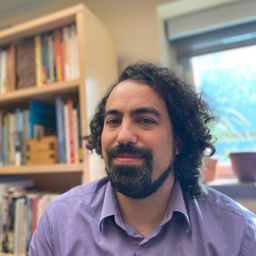
• Current principal role: Senior Heritage Advisor; Department of Conservation DOC
• Original professional training: Civil Engineering, Auckland University, career tracked into NZ Government heritage programs 1982-1997
• Department of Conservation: National Manager of Heritage Program, 1998-2012, DOC manages 100+ industrial heritage sites open to visitors and with interpretation.
• NZ World Heritage Tentative List: project manager for DOC, the NZ State Party, 2007-08 • UNITAR World Heritage Site Nomination Training Course (Hiroshima): resource person/tutor 2008-17 (7 courses)
• Heritage organisations: NZ Oral History Assn (founding member, past President); Engineering NZ (Heritage Board 1988-now); NZ Rail Heritage Trust (founding member 1990); Federation of Rail Organisations NZ (representative 1997-now); ICOMOS NZ (founding member-now); TICCIH (2012-now, 5 international conference papers on industrial heritage); Asian Network for Industrial Heritage ANIH (member 2017-now).
• World Heritage industrial projects consulting 2013-now (mainly mountain railways + forest industry): Japan; India; Iran; Taiwan; Indonesia; Chile; Romania;
• Industrial Heritage specialties: Expert level global: railways (main line, industrial, forest), forest industry; Competent level: roads, bridges, gold mining, coal mining, farming.
• Heritage management scientific tools (three) developed to aid industrial heritage: (1) Comparative Analysis MCDA method; (2) World Heritage Value Framework SOUV method; (3) Story Pyramid. Recent international papers below demonstrate applications of MCDA & SOUV scientific methods.
2014 ICOMOS Florence: Methodology for Global Comparative Analysis.
2014 Engineering NZ Christchurch: Sawmill Engineering in New Zealand.
2015 TICCIH Lille: Pick the Best: The World Heritage of the Timber Industry.
2017 ICRH Mendoza: Railway World Heritage: An Opportunity for South America.
2018 TICCIH Santiago: Mountain Railway World Heritage;
2018 TICCIH Santiago: Global Wood: All aspects of wood use in all places in all ages.
2018 UNESCO: Comparative Analysis of Mountain Railways in East Asia.
2020 ANIH (On-line): Forest Railways of the Asia-Pacific Region, an Industrial Heritage.
Sessions in which Paul Mahoney participates
lunes 29 agosto, 2022
jueves 1 septiembre, 2022
viernes 2 septiembre, 2022
Sessions in which Paul Mahoney attends
domingo 28 agosto, 2022
A one-day itinerary on the opening day of the conference will allow visitors to discover Exporail in Saint-Constant, the Beauharnois hydroelectric plant and the Cotea...
Join the conference organisers and TICCIH board members for a welcome cocktail and some festive words of introduction, in the former forge of the École technique de Montréal, founded in 1909, now part of the Université du Québec à Montréal campus.
lunes 29 agosto, 2022
This roundtable will examine innovative and creative pedagogical approaches and partnerships that have created opportunities for experiential learning and community engagement, while enabling successful delivery of programs and courses in industrial heritage. In recent years and with the ongoing situation with the COVID-19 pandemic, undoubtedly online and distance teaching and learning are a top priority. The discussions will offer an analytical dialogue on digital learning strategies and ...
Industrialization processes have been global from their very beginning. However, their interpretation still tends to be limited to specific locations or regions, and to specific time periods. Regularly, for example, it is stated that the industrial revolution started in Europe, from where it spread to the world, supposedly bringing technological and social progress to „less developed“ countries. Earlier periods of technology and knowledge transfer processes, that were already in place in t...
Industrialization processes have been global from their very beginning. However, their interpretation still tends to be limited to specific locations or regions, and to specific time periods. Regularly, for example, it is stated that the industrial revolution started in Europe, from where it spread to the world, supposedly bringing technological and social progress to „less developed“ countries. Earlier periods of technology and knowledge transfer processes, that were already in place in t...
In a traditional Quebec sugar shack atmosphere, enjoy a maple taffy rolled on snow in the purest tradition, accompanied by music of the occasion!
Si la vallée du canal de Lachine a été le berceau de l’industrialisation canadienne, la géographie industrielle métropolitaine ne s’y est pas confinée, peu s’en faut, Outre les grandes concentrations d’entreprises des quartiers centraux, elle est constituée des réseaux infrastructuraux, d’une douzaine de centrales hydroélectriques et des ensembles manufacturiers disséminés dans une quinzaine de petites villes aujourd’hui intégrées dans l’aire métropolitaine. La conférence proposera un surv...
Join us for an informal continuation of the discussion started with the public lecture.A drink will be offered to the first fifteen people.
martes 30 agosto, 2022
Efforts to preserve industrial heritage occurs in a socio-economic and political context. But what is being preserved and for whom? And, relatedly, what is the relationship between industrial heritage sites and the deindustrialized working-class communities that often adjoin them? The keynote will consider the ways that the preservation of Montreal’s Lachine Canal, Canada’s premier industrial heritage site, has enabled gentrification processes that have forc...
miércoles 31 agosto, 2022
In this lecture, I would like to talk about deindustrialised communities, heritage and memory in the context of right-wing populism. Drawing on studies of memory and heritage, I argue that right-wing populists have cornered the market on talking about the past of deindustrialised communities. They have successfully misrepresented this rich and complex history to fuel rage, resentment, fear and reactionary nostalgia. Indeed, ‘the past’, and in particular the industr...
jueves 1 septiembre, 2022
The use of industrial heritage is a profoundly important factor in the process of creating a sustainable economic, social, and political future for many communities occupying industrial heritage landscapes. More than ever we recognize the need for such communities to be capable of shaping and expressing their heritage in different forms in the context of current events and issues, and in doing so to inform both contemporary decision-making as well as the way their industrial heritage is re...
This lecture will argue that the landscapes of industrial heritage that can be found in different parts of the world are directly related to the place-specific trajectories of deindustrialization. In other words: the different ways in which deindustrialization impacts on local communities has a direct bearing on the emergence of forms of industrial heritage. I will differentialte between deindustrialization paths and related industrial heritage regimes in a) Anglo-...
viernes 2 septiembre, 2022
In the refusal of people in communities abandoned by industrial capital to abandon their own places, we can read an implicit critique of the mobility and unaccountability of capital, raised by those who were once inside (however tenuously or uncomfortably) and now find themselves marginalized, “left behind.” The desire to catch up again, whether through attracting new investment or transvaluing abandoned sites as tourist attractions, makes this an essentially conservative critique that is ...
Come and share the good times of the congress and celebrate your scientific and professional discoveries in a former fruit jam factory, Usine C, built in 1913 and transformed at the end of the 1970s into a place for creation and dissemination.Discover Montreal's gastronomy thanks to an exceptional caterer. Learn about Montreal's musical heritage and the history of the industrial district that brought it to life. Then hear and experience Quebec's musical tradition as you are carried ...








